Winnie Mandela Blu-ray Movie
HomeWinnie Mandela Blu-ray Movie 
Image Entertainment | 2011 | 107 min | Rated R | Dec 03, 2013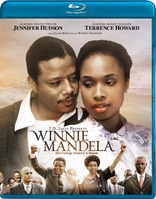
Movie rating
6.7 | / 10 |
Blu-ray rating
| Users | 0.0 | |
| Reviewer | 3.0 | |
| Overall | 3.0 |
Overview
Winnie Mandela (2011)
The life of Winnie Mandela from her childhood through her experience as a social worker in Johannesburg, where she met and married Nelson Mandela, who was then imprisoned for 27 years by the South African government for his opposition to apartheid. Mrs. Mandela took up her husband's cause and was herself persecuted and imprisoned.
Starring: Jennifer Hudson, Terrence Howard, Wendy Crewson, Elias Koteas, Lawrence JoffeDirector: Darrell Roodt
| Drama | Uncertain |
| History | Uncertain |
| Biography | Uncertain |
Specifications
Video
Video codec: MPEG-4 AVC
Video resolution: 1080p
Aspect ratio: 2.35:1
Original aspect ratio: 2.39:1
Audio
English: DTS-HD Master Audio 5.1 (48kHz, 16-bit)
Subtitles
English, English SDH, Spanish
Discs
25GB Blu-ray Disc
Single disc (1 BD)
Playback
Region A (B, C untested)
Review
Rating summary
| Movie | 2.5 | |
| Video | 4.5 | |
| Audio | 4.5 | |
| Extras | 1.5 | |
| Overall | 3.0 |
Winnie Mandela Blu-ray Movie Review
Many Rivers to Cross
Reviewed by Michael Reuben December 4, 2013Director Darrell Roodt's 2011 film adaptation of the life of Winnie Mandela, the first wife of former political prisoner and South Africa's first black president, was beset by controversy from its inception. Mrs. Mandela herself objected to the production, protesting that she had not be consulted about the film or the script, which Roodt and executive producer Andre Pieterse adapted from the biography by Anne Marie du Preez Bezdrob. Many South African actors protested the casting of Americans Jennifer Hudson and Terrence Howard in the lead roles of Nelson and Winnie Mandela, a decision no doubt attributable to the international co-financing that allowed filming to proceed and the necessity of having familiar names for marketing purposes. The film was poorly received at the Toronto Film Festival in 2011 and only received distribution under the auspices of T.D. Jakes of The Potter's House, an American megachurch. Poor reviews greeted the Canadian release in October 2012, after which Image/RLJ Entertainment acquired U.S. distribution rights. The film did not fare any better during its limited U.S. release in September 2013. Winnie Mandela has much to recommend it. It has epic scale, with gorgeous locations, thousands of extras and over a hundred speaking parts. Roodt is a native of South Africa and an experienced director, whose credits include Cry the Beloved Country and Serafina! Terrrence Howard's portrayal of Nelson Mandela over a period of nearly forty years, tracing the arc from young agitator to the calm figure of wisdom and sorrow who emerges from twenty-seven years in prison is convincing and impressive. And Jennifer Hudson effectively captures the steel of a woman who survived over 400 days in solitary confinement (something her husband never endured), along with the anger and the mystery that continue to make Mrs. Mandela a polarizing figure and necessitated the divorce between her and Nelson so that he could be a credible president. The problem with Roodt's film is that it tries to be too many things at once—love story, classical tragedy, historical epic, morality tale—and ends up succeeding at none of them. To the extent Winnie Mandela inspires viewers to delve into the chaotic and bloody history of these all-too-recent events, the film can serve a valuable purpose, but as a dramatic experience it remains unsatisfying.
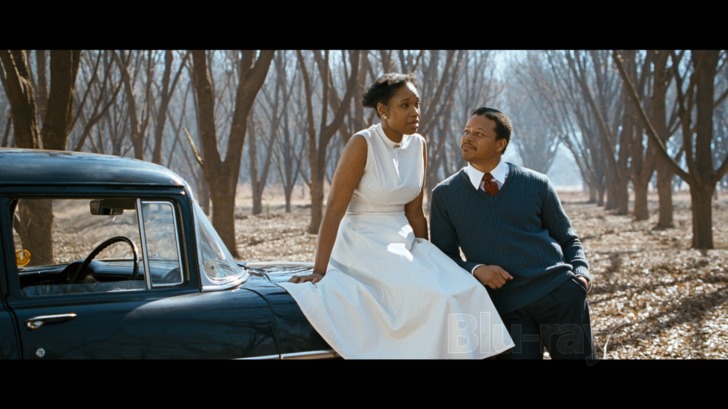
The film opens with Winnie's birth in the rural eastern district of South Africa, the sixth daughter of a school teacher, who desperately wanted a boy and made little effort to conceal his disappointment. Christened Nomzamo Winfreda Zanyiwe Madikizela, the girl grows up determined to prove her mettle and out-compete every boy in the village. There is material for an entire drama here as the character of a future social reformer and (depending on one's definition) revolutionary is forged in childhood, but the film doesn't have time to do more than telegraph a few psychological bullet points. It has to rush onward. As a young woman (now played by Hudson), Winnie moves to Johannesburg to study for a degree in social work. A promising student, she is offered a scholarship to continue her education in America, with a strong suggestion that the white government would very much like to get rid of any black person who displays signs of intelligence, but Winnie elects to remain in her homeland. She experiences the indignities of being treated as subhuman, and she also meets, and is wooed by, the charismatic Nelson Mandela (Howard), a leader of the African National Congress, or "ANC". The forces of the ruling white government are primarily represented by the composite character of Colonel de Vries, who, despite the best efforts of the talented Elias Koteas, remains a two-dimensional cardboard villain, but the film never provides any historical context or explanation of the complex political, economic and social scene in which the ANC was maneuvering (not to mention the growing international protest against apartheid that ultimately played a crucial role in ending it). Perhaps a South African audience would not need such background, but Winnie Mandela was made for an international market. The actions and strategies of the ANC need to be explored in more depth than just a few scenes of Mandela speaking to a crowd. Mandela's imprisonment leaves Winnie and their two children alone, and the narrative tries to proceed on two paths. One is the story of lovers parted by circumstances, as Nelson and Winnie hang onto each other through heavily censored correspondence and rare visits that are often cut short by officious guards. The other is Winnie's radicalization as she becomes more active within the ANC, agitating for Nelson's freedom. Her growing influence as a symbol causes de Vries to arrest and imprison her for nearly two years, much of it spent in solitary confinement, and this extended and unpleasant sequence takes the film in an entirely new direction. Without directly saying so, Roodt strongly suggests that Winnie emerged from this harrowing experience (which was almost certainly much worse than what the film portrays) a changed person. Her later willingness to embrace the violence that her husband always rejected seems to flow directly from this systematic abuse at the hands of the white majority's police apparatus. Exiled with her children for many years to the remote town of Brandfort, she learns of the deteriorating conditions in Soweto (the black district of Johannesburg) during visits from her friend, Mary Botha (Wendy Crewson). When she is finally allowed to return, she is no longer safe in her own home. This leads to the formation of the controversial Mandela United Football Club as her personal guard. Nelson Mandela calls them a gang of thugs, and their brutal activities in Winnie's name—whether or not sanctioned by her remains debated—will eventually ruin her reputation, damage her political future and destroy her marriage.
Winnie Mandela Blu-ray Movie, Video Quality 
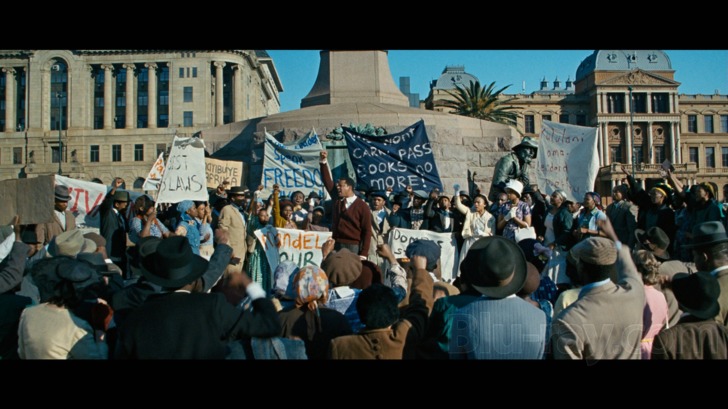
Shot on film by Canadian cinematographer Mario Janelle (graduating from second unit work on such films as Upside Down), Winnie Mandela was finished on a digital intermediate, from which Image/RLJ's 1080p, AVC-encoded Blu-ray was presumably sourced. The image is crisply defined and razor sharp, with a smooth, nearly grainless appearance that could almost be mistaken for digital photography (which seems to be the goal of most contemporary DI colorists). A golden glow suffuses most of the outdoor scenes, even in Nelson Mandela's Robben Island prison quarry, where the sunlight suggests hope more than heat. The color palette is vivid and intense, and both the production design and the post-production have conspired to draw disproportionate attention to Winnie Mandela's evolving wardrobe, which results in a sharp exchange between her and the judge at Nelson's trial. While the historical photographs accompanying the end credits suggest that this design may be accurate, it's a questionable visual strategy, because it invests too much of the character in her outfit and distracts from the woman herself. (It's the African equivalent of a society column that begins by describing what each lady wore to a luncheon.) Still, this isn't a fault of the Blu-ray, which conveys the multitude of colors in both Winnie's wardrobe and that of others (including her notorious "football team") without bleeding or oversaturation. The landscapes, streets of Johannesburg and grim interiors of prisons also get the appropriate hues and shadings. Beyond any adjustments made at the DI stage, there is no indication of high frequency filtering or other untoward digital manipulation. Image continues its habit of using BD-25s wherever possible, holding the average bitrate at 19.99 Mbps for this 107-minute film, but the presence of black letterbox bars and of sufficient scenes involving quiet conversation seem to have afforded the compressionist enough space to avoid artifacts.
Winnie Mandela Blu-ray Movie, Audio Quality 
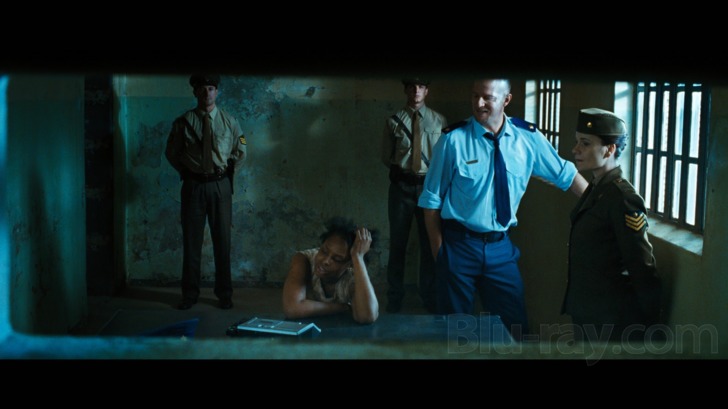
The film's original 5.1 soundtrack is presented in lossless DTS-HD MA. The English dialogue is very clear, and the less frequent dialogue in either Xhosa or, occasionally, Afrikaans is translated by non-switchable English subtitles. Several major crowd scenes of demonstrations and attacks on demonstrators by the police make effective use of the surrounds and, in some instances, the LFE channel to emphasize the scale of the confrontation and the threat from the authorities. Certain specific locales like the huge courtroom have subtle ambiant qualities that distinguish them from everyday situations. The soundtrack by French composer Laurent Eyquem (Copperhead) is beautiful but unfortunate. It has the sweep and warmth of a historical romance, which is the wrong tone for Winnie Mandela. The same can be said of the Diane Warren song "Bleed for Love", which Jennifer Hudson sings over the end credits. The film should end with something haunting and tragic, and that's not what Warren writes or Hudson sings.
Winnie Mandela Blu-ray Movie, Special Features and Extras 
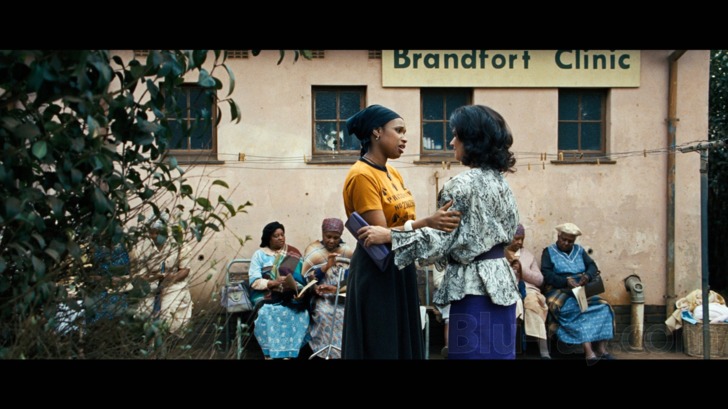
- The Making of Winnie Mandela (1080p; 1.78:1; 22:24): This is an unusually detailed behind-the-scenes feature that includes interviews with Howard, Hudson, Roodt, Crewson, Hlmola Dandala (Oliver Tambo), Pieterse, DP Mario Janelle, production designer Emilia Roux (a/k/a Emilia Weavind), costume designer Pierre Vienings and several dialect and accent coaches. Note that, although this feature has been formatted at 1080p, it appears to be upconverted from material of lower resolution, which may account for the frequently jerky motion.
- Trailers: At startup, the disc plays trailers for Red Hook Summer and All Things Fall Apart, which can be skipped with the chapter forward button and are not otherwise available once the disc loads.
Winnie Mandela Blu-ray Movie, Overall Score and Recommendation 
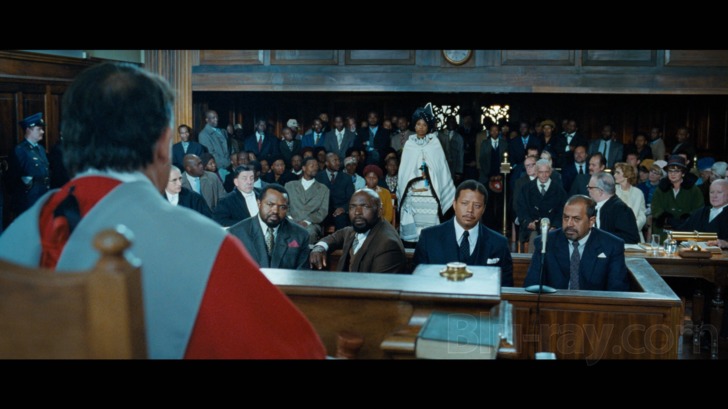
I remember when many of the events depicted in Winnie Mandela were being reported in the news. It seemed even then that conflicts of Shakespearean dimension lay just beneath the headlines, waiting for a dramatist of sufficient skill and insight to shape them into a coherent narrative. Roodt and Pieterse have attempted to do so, but they may be too close to the material. They have jammed a miniseries' worth of events into a 107-minute film, and the result is superficial. Mrs. Mandela's story has yet to be brought to full dramatic life. Recommended only for its technical qualities and, perhaps, as an introduction to a turbulent and deadly chapter in recent history.
Similar titles
Similar titles you might also like
(Still not reliable for this title)

Invictus
2009

Mandela: Long Walk to Freedom
2013

Gandhi 4K
1982

The Last King of Scotland
2006

The Last Emperor 4K
Theatrical (4K/BD) and Television (BD) Versions
1987

Oppenheimer 4K
2023

J. Edgar
2011

Hunger
2008

Dallas Buyers Club
2013

The Iron Lady
2011

Nicholas and Alexandra
Limited Edition to 3000 - SOLD OUT
1971

The Lady
2011

The Aviator
2004

Kundun
1997

First Man 4K
2018

Malcolm X 4K
1992

In Cold Blood
1967

Of Gods and Men
Des hommes et des dieux
2010

Jimmy's Hall
2014

Che: Part Two
2008